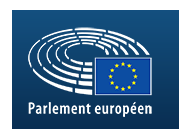Document type Answer to question E-000168/2023 from the European Commission
Authors: question: Petras Auštrevičius (Renew). Answer: Mr Sinkevičius on behalf of the European Commission
Question: The Zoos Directive in Lithuania
Since 2018, an unusual number of species (more than 130) protected under the Convention on International Trade in Endangered Species of Wild Fauna and Flora (CITES) have died in Lithuanian zoos, and more than 50 CITES-protected species have disappeared from zoos without any attempts by the competent authorities to investigate potential trafficking in wild animals or their body parts.
92 % of the animals in the six licensed zoos in Lithuania are exotic and primarily kept for entertainment purposes (e.g. tiger cub petting or dolphin shows). None of the zoos comply with the Zoos Directive or with the national laws in force. They do not carry out public education initiatives or participate in scientific research to contribute to the protection of endangered wildlife, as required by EU law and for countries who ratified the Convention on Biological Diversity (CBD). Welfare conditions are grossly violated and animal health and life are seriously compromised.
The Lithuanian Ministry of Environment has failed to monitor zoo licence requirements. In some zoos not a single inspection has been carried out since their licence was issued in 2012. This has been confirmed in an official response from the Ministry.
Is the Commission aware of these shortcomings? If so, what initiative(s) will it take to ensure the proper enforcement of the Zoos Directive in Lithuania?
Answer: The Commission was not aware of any specific issues related to the disappearance of animals from the Lithuanian zoos. T he evaluation of the Zoos Directive in 2018 did not point out to any particular compliance issues with the Lithuanian licencing and inspection systems.
The number of licenced zoos increased between 2010 and 2015, with some licences initially refused and only granted after improvements were made. Breaches were detected and addressed. The country has also included minimum standards for animal accommodation in its national law.
Under the Zoos Directive, the licencing and inspection system of the zoos is the responsibility of the Member States. Compliance with the conditions contained in the licences to enforce the requirements applicable to zoos set out in Article 3 of the directive is to be monitored inter alia by means of regular inspections.
The Commission has supported Member States in better implementation through guidance on good practices, stakeholder meetings as well as pilot trainings, which covered all aspects of the Zoos Directive. The Lithuanian authorities participated in all the meetings, as well as in online and on-site trainings.
Lithuania is responsible for applying the provisions of the Zoos Directive and ensuring their necessary enforcement. In its role as guardian of the Treaties, the Commission monitors the application of the directive .
Based on the information provided by the Honourable Member, the Commission is taking up this matter with the Lithuanian authorities.






